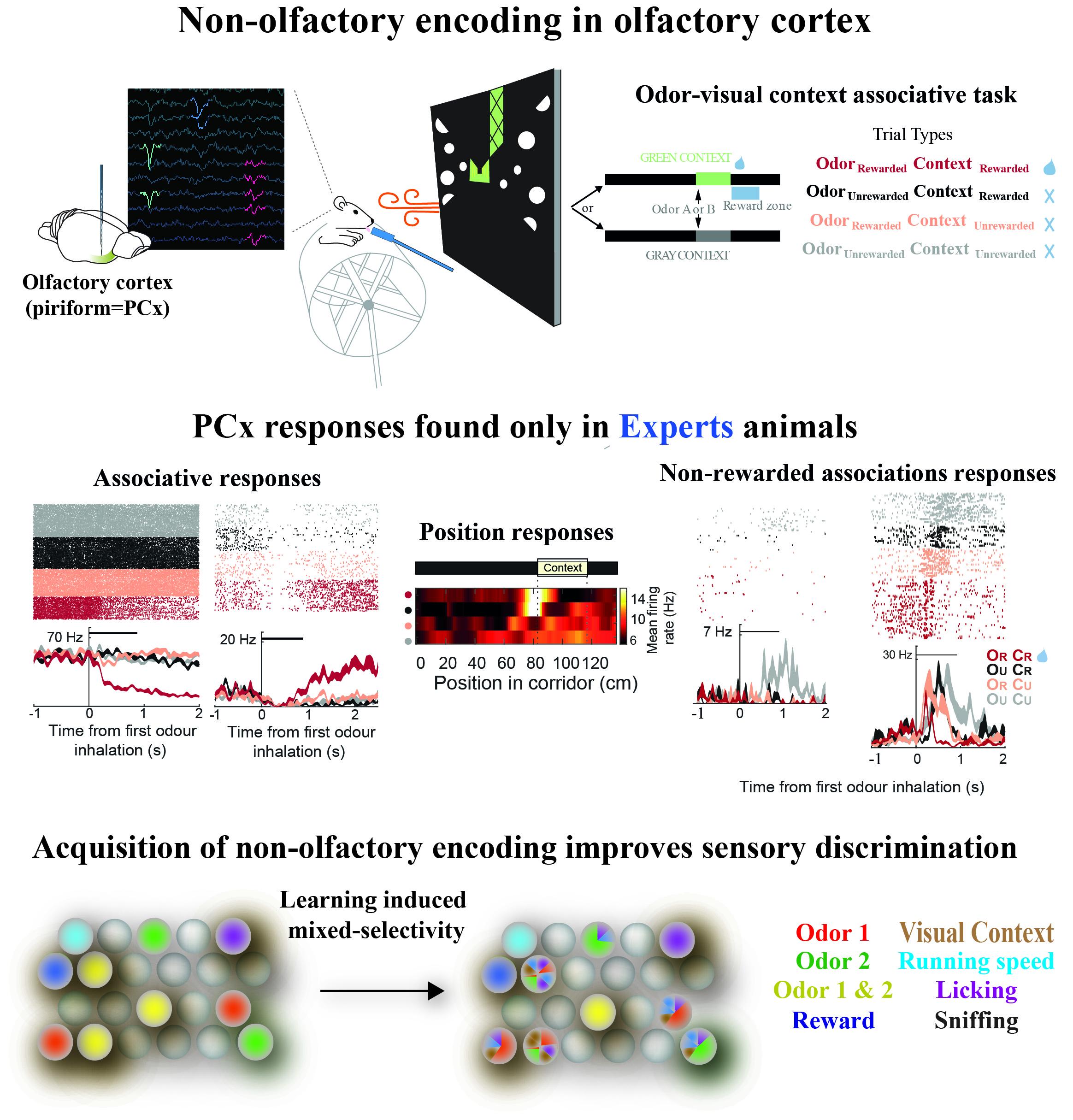Abstract
The sense of smell does not depend solely on the odorant itself, but is deeply influenced by the animal's internal state, previous experiences and current context. However, it is unclear whether these factors are integrated in the early stages of olfactory processing, nor how they affect the brain's ability to discriminate odours. In this talk, I will present our work on how the primary olfactory cortex (piriform, PCx) incorporates non-olfactory cues that enhance sensory discrimination. Using neural recordings in mice trained in a virtual reality task, where they associate odours with visual contexts to obtain rewards, we found that learning transforms neural activity in the PCx. What was initially a simple odour coding evolves into a more complex representation where PCx neurons are modulated also by positional, contextual, and associative cues, showing mixed selectivity. These non-olfactory responses in the olfactory cortex were dynamic and context-dependent, enhancing the animals' ability to discriminate odours in the learned task. This improvement relied on the acquisition of mixed selectivity, highlighting how the integration of extra-sensory signals in a primary sensory cortex not only fine-tunes sensory processing, but also encodes the behavioural relevance of stimuli.

Biography
Noel Federman is a Research Assistant Professor at the Institute of Biomedical Research Buenos Aires. Prior to this position, she completed a PhD at the University of Buenos Aires, where she studied the molecular and behavioural mechanisms of long-term memory consolidation in both vertebrate and invertebrate models, while comparing neuronal epigenetic regulation between species. In her PhD work she found that learning-induced histone acetylation is a conserved molecular signature of persistent memories and identified, for the first time, nucleosomal movements in memory-related genes during consolidation. She later transitioned to systems neuroscience during a postdoctoral position, including an internship at the HHMI Janelia Research Campus, where she mastered in vivo electrophysiology in head-fixed, behaving animals. In Antonia Marin Burgin's Lab in Argentina, she implemented these techniques from the ground up, developing a novel behavioural paradigm involving mice navigating in virtual reality to study neural dynamics in the primary olfactory cortex during sensory discrimination. Her current research interests focus on understanding how different brain areas communicate and influence each other during behaviour.
